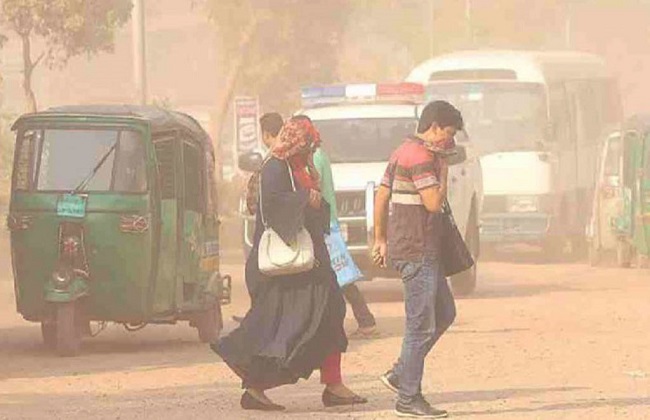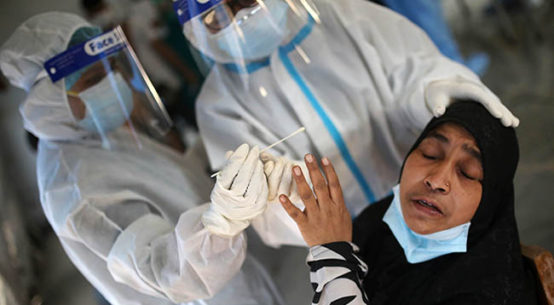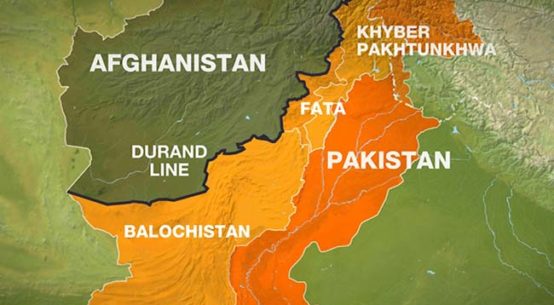
A recently published global report on air pollution has revealed that the average life expectancy of a Bangladeshi has been cut by almost three years due to polluted air. According to the report, the life expectancy loss in Bangladesh is 2.91 years; 1.16 years is cut short by outdoor air pollution, while 1.53 years by indoor air pollution. The report also made a dangerous revelation that “air pollution reduces people’s average life expectancy by almost as much as tobacco use does.” Being one of the worst affected countries in the world in terms of air pollution, Bangladesh must take these findings seriously and try to mitigate the factors behind air pollution.
Bangladesh and its capital Dhaka have repeatedly been in the news for the past several years for suffering from the worst quality of air. In February this year, Dhaka’s air was found to be the world’s second-most polluted—its Air Quality Index (AQI) score was recorded at 194, which is considered “poor” or “very unhealthy.” According to the World Air Quality Report 2020, the average annual PM2.5 concentrations in the country was 77.1 micrograms per cubic meter, which was more than two times higher than the WHO-recommended level.It’s only natural that this polluted air will take its toll on people’s well-being, since exposure to hazardous air leads to many short- and long-term health complications. Air pollution is directly linked to heart disease, chronic respiratory diseases, lung infections and cancer, as several studies have found. It’s among the top-risk factors for death and disability worldwide.
The main reasons for air pollution in Bangladesh were identified by the experts long ago. A report by the Department of Environment (DoE) and the World Bank in March 2019 pointed out that brick kilns, fumes from vehicles and dust from construction sites are the three main sources of air pollution in Dhaka. Sadly, illegal brick kilns are still operating across the country, despite the High Court’s directives to shut them down, while the number of unfit vehicles is also increasing on our roads. And nothing substantial has been done by the authorities to stop dust pollution from the construction sites.
Only recently, our average life expectancy increased by 0.2 years, according to a BBS study: it increased to 72.8 years in 2020 from 72.6 years in 2019. That unchecked air pollution will take away our hard-earned progress is totally unacceptable. Since the main reasons for air pollution have already been identified, it’s high time the authorities chalked out a special action plan to tackle the menace. They should prepare time-bound mitigation measures to set up air quality monitoring systems in appropriate places and save people from exposure to unhealthy air, as per the High Court directive.


